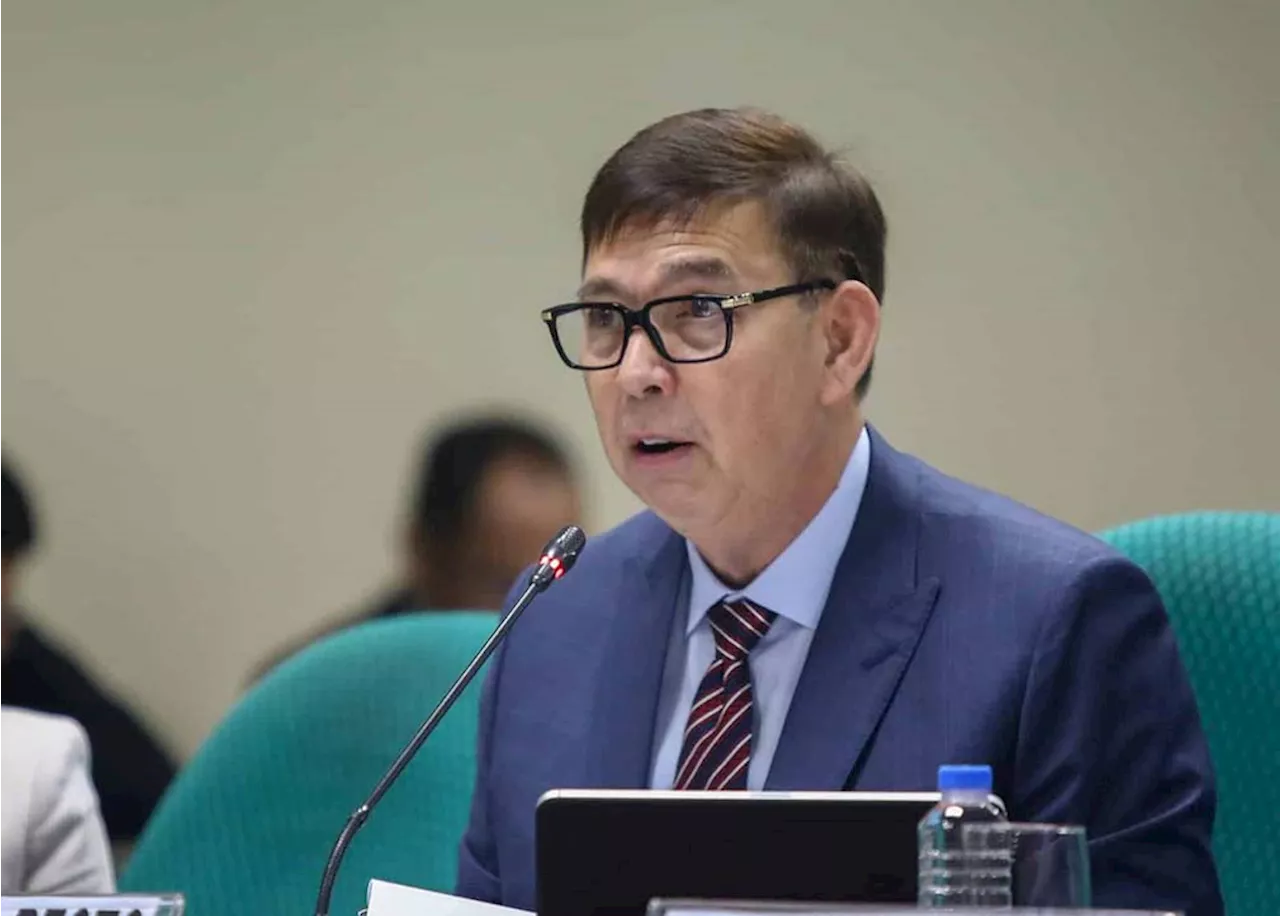The Philippine economy, while falling short of its growth target in 2024, is projected to benefit from easing inflation in 2025. Finance Secretary Ralph G. Recto anticipates lower interest rates and increased consumption, driven by the full implementation of the Create More Act and a robust national budget.
Despite falling short of its growth target, the Philippine economy is projected to benefit from easing inflation in 2025. Finance Secretary Ralph G. Recto stated that lower inflation would allow the government to reduce interest rates, stimulating consumption. The country's GDP growth reached 5.6 percent in 2024, with a 5.5 percent growth in the fourth quarter of 2023 and an average of 5.5 percent for the full year 2023.
This outcome, while below the target, places the Philippines among the fastest-growing economies globally. Recto attributed this resilience to the government's strategies despite facing external and local challenges such as extreme weather events, geopolitical tensions, and subdued global demand.Recto expressed optimism about the economic outlook for 2025, citing the potential for lower interest rates to further boost consumption. He highlighted the anticipated influx of investments due to the full implementation of the Corporate Recovery and Tax Incentives for Enterprises to Maximize Opportunities for Reinvigorating the Economy (Create More) Act. The Act attracted global investors during events like the World Economic Forum and Philippine Business Dialogue in the Netherlands, with the interim Implementing Rules and Regulations issued in December 2024 and the final IRR expected to be signed in February 2025. Furthermore, Recto emphasized the role of the P6.326-trillion 2025 national budget as a powerful tool to mitigate risks and deliver economic benefits to Filipinos. He noted President Ferdinand R. Marcos Jr.'s continued efforts to identify funding gaps across national government agencies, ensuring efficient and impactful allocation of resources. The extension of the Rice Competitiveness Enhancement Fund (RCEF) until 2031, with an increased allocation of P30 billion, is expected to enhance local rice production, support farmers, and stabilize rice prices. The government is also actively combating African Swine Fever (ASF) through vaccination programs to prevent disruptions in pork supply. Additionally, the National Economic and Development Authority (Neda) is finalizing the Trabaho Para sa Bayan (TPB) Plan, a 10-year employment roadmap aimed at improving workforce employability and generating at least three million jobs by 2028. Recto concluded that despite persistent domestic and external headwinds in 2025, the government will continue implementing growth-enhancing strategies to ensure the Philippines stays on track with its medium- to long-term goals outlined in the Philippine Development Plan 2023-2028
PHILIPPINES ECONOMY GROWTH INFLATION INTEREST RATES CONSUMPTION CREATE MORE NATIONAL BUDGET JOBS
Philippines Latest News, Philippines Headlines
Similar News:You can also read news stories similar to this one that we have collected from other news sources.
 Philippines Revenue Agencies Likely Hit 2024 Targets, 2025 Aims HighThe Bureau of Internal Revenue (BIR) and the Bureau of Customs (BOC) are projected to meet their 2024 revenue targets, according to Finance Secretary Ralph Recto. The government plans to increase revenue collection in 2025, with the BIR and BOC playing crucial roles.
Philippines Revenue Agencies Likely Hit 2024 Targets, 2025 Aims HighThe Bureau of Internal Revenue (BIR) and the Bureau of Customs (BOC) are projected to meet their 2024 revenue targets, according to Finance Secretary Ralph Recto. The government plans to increase revenue collection in 2025, with the BIR and BOC playing crucial roles.
Read more »
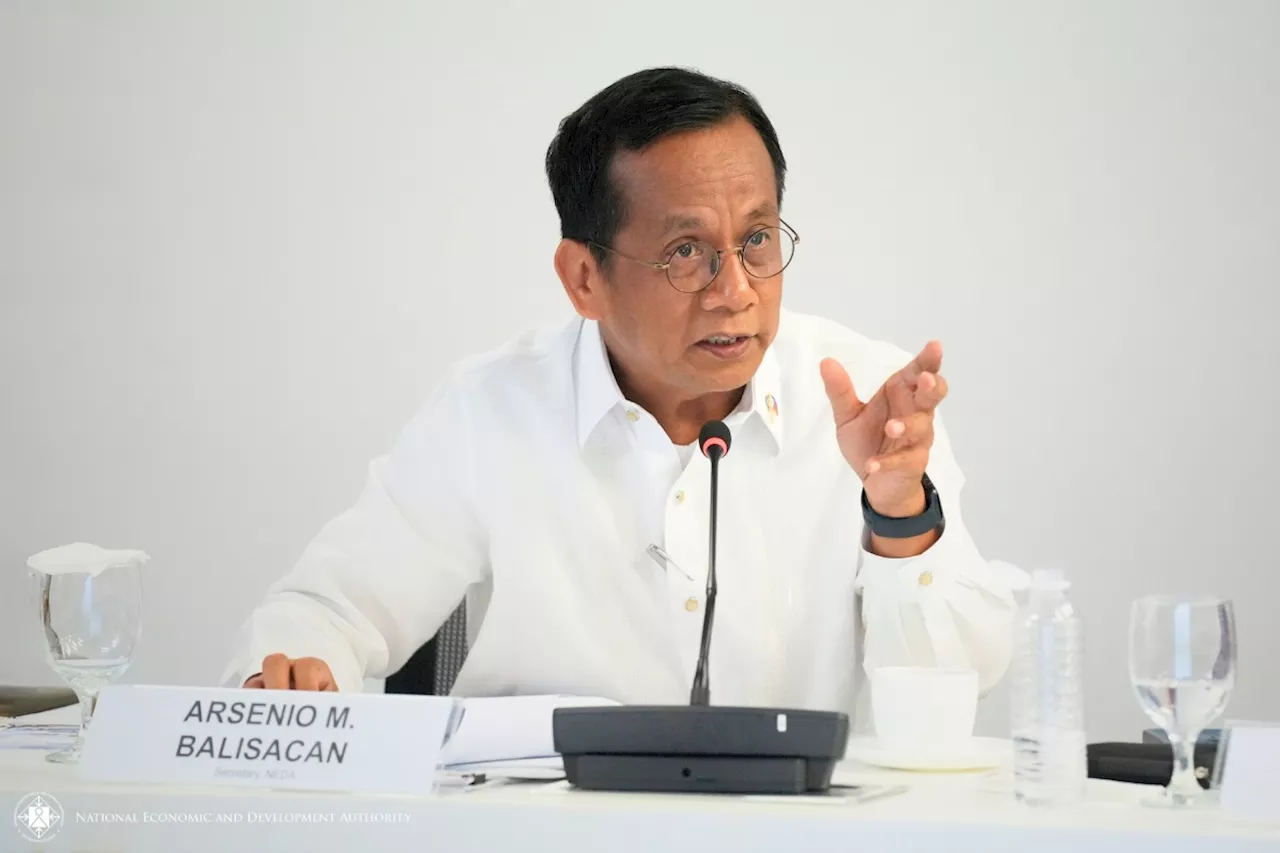 Philippines Aims for Sustained Growth, Low Inflation, and Poverty Reduction in 2025The Philippine government has outlined its plans for 2025, focusing on maintaining robust economic growth, controlling inflation, and further reducing poverty. Despite facing challenges, the economy has shown strong performance in the first three quarters of 2024, with all sectors recovering to pre-pandemic levels.
Philippines Aims for Sustained Growth, Low Inflation, and Poverty Reduction in 2025The Philippine government has outlined its plans for 2025, focusing on maintaining robust economic growth, controlling inflation, and further reducing poverty. Despite facing challenges, the economy has shown strong performance in the first three quarters of 2024, with all sectors recovering to pre-pandemic levels.
Read more »
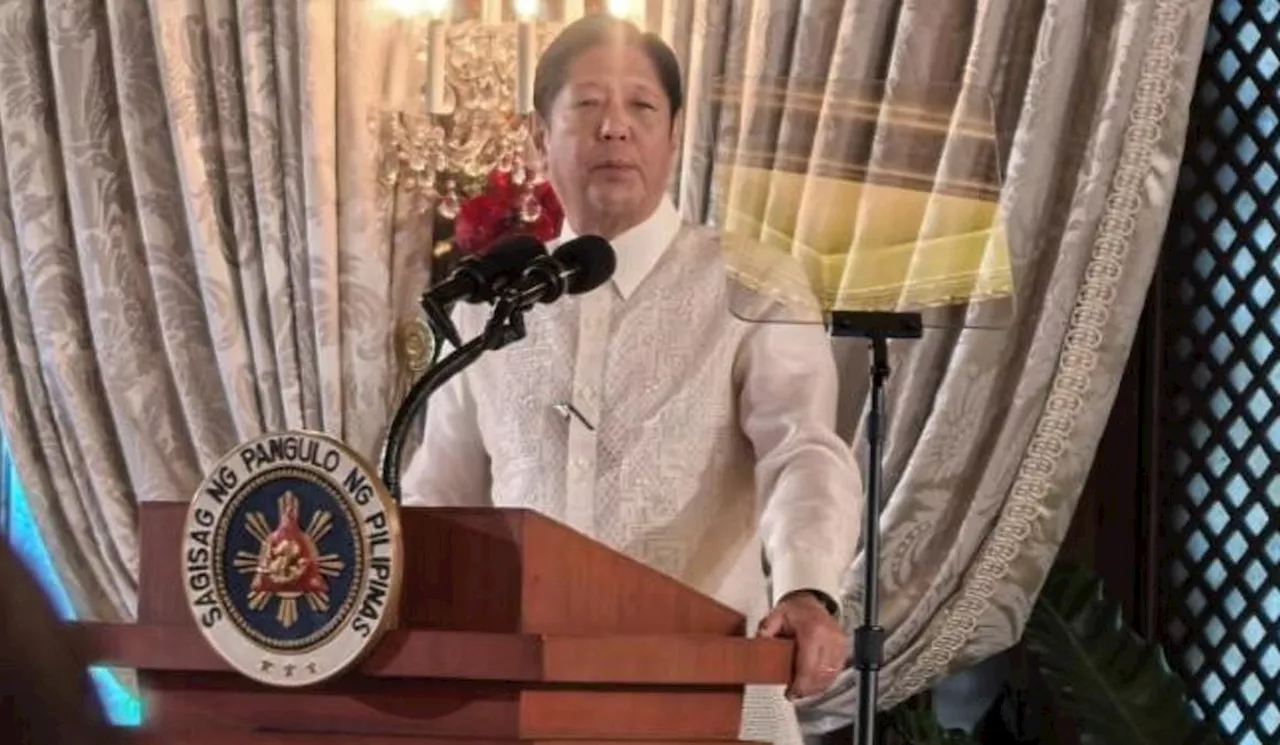 Marcos Warns Against Complacency Despite Philippines' Stronger Economic Outlook for 2025Philippine President Ferdinand Marcos Jr. cautions against complacency despite positive economic outlook for 2025.
Marcos Warns Against Complacency Despite Philippines' Stronger Economic Outlook for 2025Philippine President Ferdinand Marcos Jr. cautions against complacency despite positive economic outlook for 2025.
Read more »
 Philippines' Economic Growth Forecast at 6.3% for 2025Robust household spending, low unemployment, and election-related economic activity are expected to bolster the Philippines' economic growth, potentially reaching the official target of 6.0-8.0% for 2023. BPI's lead economist, Emilio Neri, forecasts a 6.3% expansion for 2025, driven by continued consumer spending. Factors like remittances, low unemployment, and AI's potential to enhance productivity are expected to contribute to this growth. However, global uncertainties, particularly the US Federal Reserve's policy direction under a second Trump administration, could influence the peso's performance and limit monetary easing.
Philippines' Economic Growth Forecast at 6.3% for 2025Robust household spending, low unemployment, and election-related economic activity are expected to bolster the Philippines' economic growth, potentially reaching the official target of 6.0-8.0% for 2023. BPI's lead economist, Emilio Neri, forecasts a 6.3% expansion for 2025, driven by continued consumer spending. Factors like remittances, low unemployment, and AI's potential to enhance productivity are expected to contribute to this growth. However, global uncertainties, particularly the US Federal Reserve's policy direction under a second Trump administration, could influence the peso's performance and limit monetary easing.
Read more »
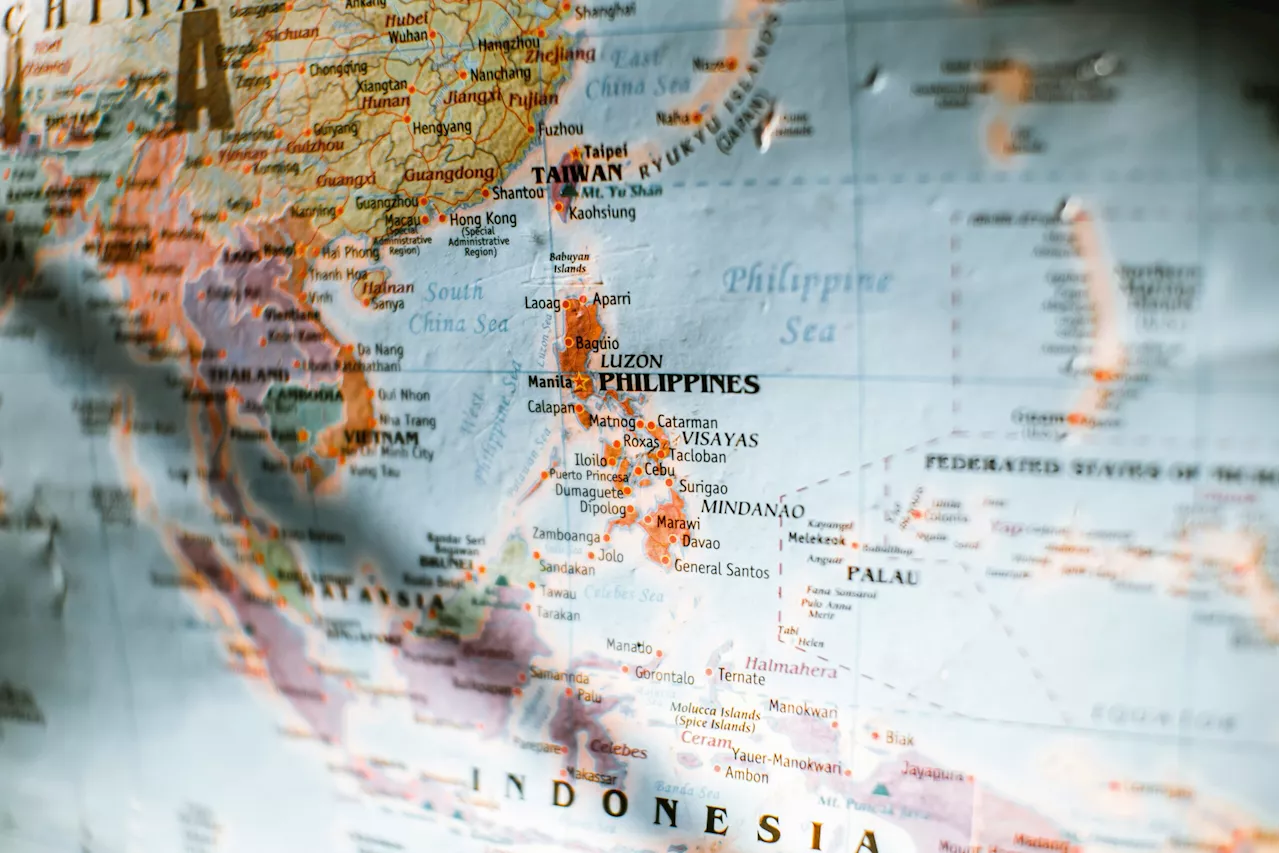 World Bank and IMF Predict Philippines' Strong Economic Growth in 2025 and 2026Both the World Bank and the International Monetary Fund (IMF) forecast the Philippine economy to expand by over 6 percent annually in 2025 and 2026, defying global challenges. The World Bank projects a 6.1 percent growth in 2025 and 6.0 percent in 2026, while the IMF is more optimistic at 6.1 percent and 6.3 percent respectively.
World Bank and IMF Predict Philippines' Strong Economic Growth in 2025 and 2026Both the World Bank and the International Monetary Fund (IMF) forecast the Philippine economy to expand by over 6 percent annually in 2025 and 2026, defying global challenges. The World Bank projects a 6.1 percent growth in 2025 and 6.0 percent in 2026, while the IMF is more optimistic at 6.1 percent and 6.3 percent respectively.
Read more »
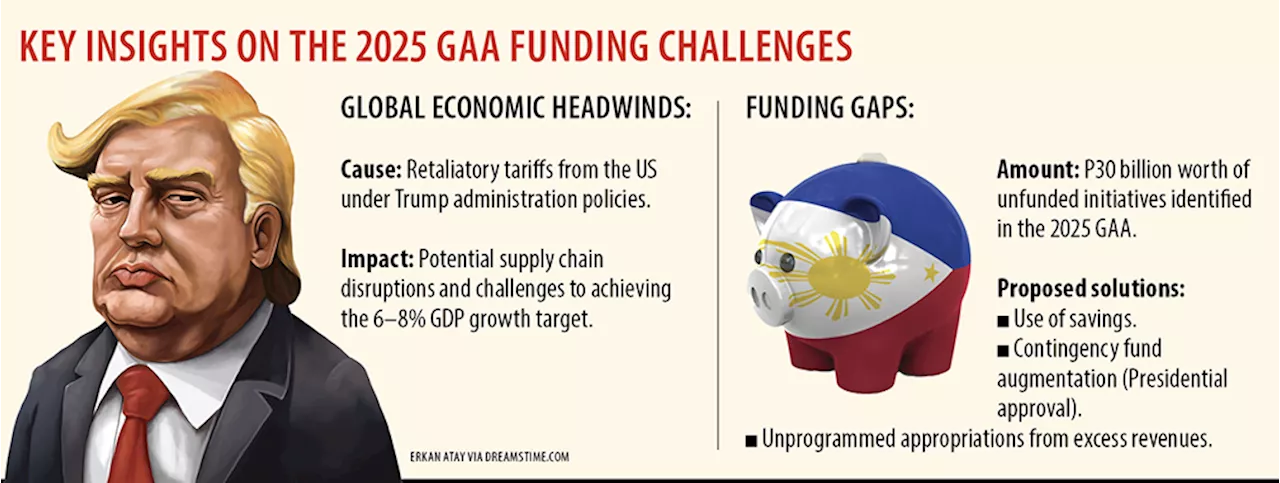 Funding Gaps in 2025 Budget Threaten Philippines' Economic ResilienceThe National Economic and Development Authority (Neda) warns that unfunded initiatives in the 2025 General Appropriations Act (GAA) could hinder the Philippines' ability to withstand global economic headwinds, including potential fallout from US tariffs. Neda Secretary Arsenio M. Balisacan emphasizes the need for government funding to support critical sectors and maintain economic stability.
Funding Gaps in 2025 Budget Threaten Philippines' Economic ResilienceThe National Economic and Development Authority (Neda) warns that unfunded initiatives in the 2025 General Appropriations Act (GAA) could hinder the Philippines' ability to withstand global economic headwinds, including potential fallout from US tariffs. Neda Secretary Arsenio M. Balisacan emphasizes the need for government funding to support critical sectors and maintain economic stability.
Read more »
